Non-fiction
These are the non-fiction books I have read since the beginning of 2019 I have been reading. I like non-fiction but have started reading fiction since the love of my life passed away.
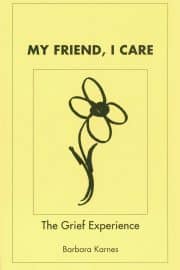
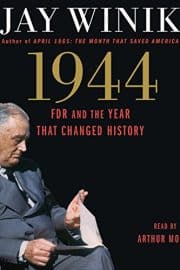
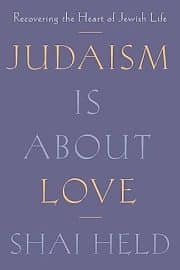
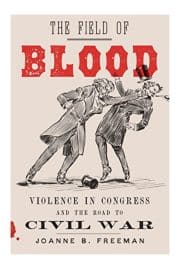
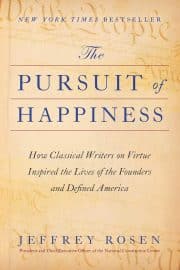
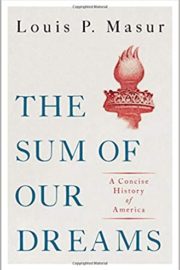
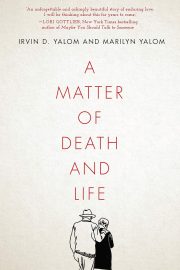
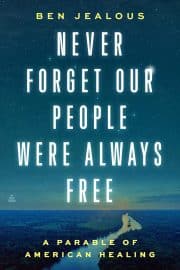
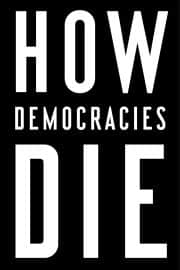
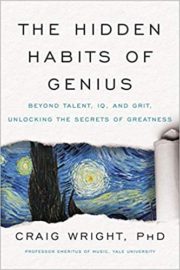
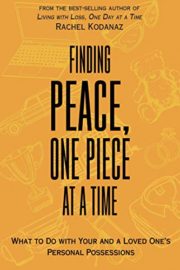
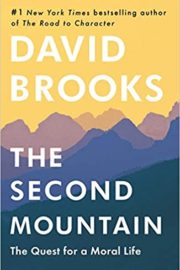
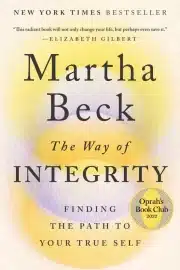
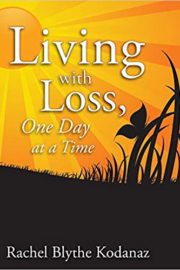
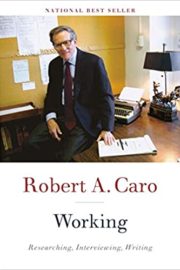
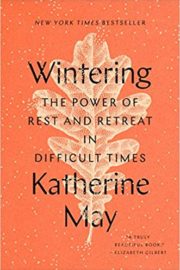
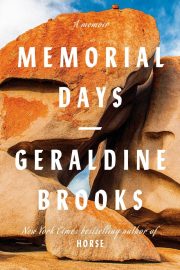
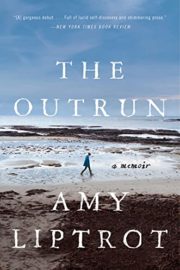
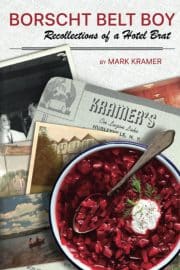
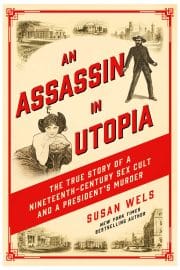
Contact US!
Have a question? Suggestion?
by Barbara Karnes RN
My journey from the Island of Grief back to the Land of Love is long and arduous. Friends, especially those who have also lost a loved one, are the guideposts on this journey. One of these friends, Sue Gramacy, sent this book to me during the early phases of my grief journey.
My Friend, I Care: The Grief Experience may be one of the shortest books I have ever read, but it is also one that has been most helpful. Barbara Karnes, RN, provides a concise understanding of grief, and she includes a list of dos and don’ts that are very helpful to someone who has recently lost the love of their life.
She provides a compelling explanation of the new life that we all must strive to achieve.
Our inability to further enjoy life does not measure our loss. The quality of our relationship with the person who has died is found in our strength, our resilience and our ability to create a new and meaningful life.
The endpoint of my journey is a new and meaningful life. This book has helped remind me that it is an achievable goal.
by Jay Winik
1944: FDR and the Year That Changed History by Jay Winik is a book that I had put off reading several times. When I finally did read it, I could not remember why I had not read it sooner. Had I gone to graduate school and become a professor, it might have been the type of book I might write, and I certainly would have had on my list of books for my classes.
As The NY Times wrote, “Jay Winik brings to life in gripping detail the year 1944, which determined the outcome of World War II and put more pressure than any other on an ailing yet determined President Roosevelt.” Reading a book about events five years before my birth that transformed the world I live in becomes an easy page-turner.
It was not inevitable that World War II would end as it did or that it would even end well. Nineteen forty-four was a year that could have stymied the Allies and cemented Hitler’s waning power. Instead it saved those democracies – but with a fateful cost. Now, in a superbly told story, Jay Winik, the acclaimed author of April 1865 and The Great Upheaval, captures the epic images and extraordinary history as never before.
1944 witnessed a series of titanic events: FDR at the pinnacle of his wartime leadership as well as his reelection, the planning of Operation Overlord with Churchill and Stalin, the unprecedented D-Day invasion, the liberation of Paris, and the horrific Battle of the Bulge, and the tumultuous conferences that finally shaped the coming peace. But on the way, millions of more lives were still at stake as President Roosevelt was exposed to mounting evidence of the most grotesque crime in history, the Final Solution. Just as the Allies were landing in Normandy, the Nazis were accelerating the killing of millions of European Jews.
Winik shows how escalating pressures fell on an all but dying Roosevelt, whose rapidly deteriorating health was a closely guarded secret. Here then, as with D-Day, was a momentous decision for the president. Was winning the war the best way to rescue the Jews? Was a rescue even possible? Or would it get in the way of defeating Hitler? In a year when even the most audacious undertakings were within the world’s reach, including the liberation of Europe, one challenge – saving Europe’s Jews – seemed to remain beyond Roosevelt’s grasp.
I recommend this book.
by Rabbi Shai Held
Today, I embarked on a transformative journey with Rabbi Shai Held’s book, “Judaism Is About Love.” Rav Uri‘s mention of this book during this year’s Yom Kippur service at Temple Sha’arey Shalom sparked a profound connection to the Divine, as echoed in my writings “Love Can Conquer Even Death” and “High Holiday Meditation Cleanses My Soul.” Rabbi Held’s book, which focuses on love, meaning, purpose, and faith, has guided my quest to become the best version of myself.
“Judaism Is About Love” is a beacon of understanding, offering a profound and groundbreaking perspective on Jewish life. It challenges a long-standing misinterpretation that has shaped the Western narrative: Christianity is the religion of love, while Judaism is the religion of law. Rabbi Shai Held, a leading Jewish thinker in America, passionately argues for correcting this misconception. He asserts that love is not just a part of Judaism but a fundamental aspect, thus reclaiming the heart of the Jewish tradition.
With a unique blend of intellectual rigor, respect for tradition, and a vibrant Judaism, Held’s aim is clear: to reclaim Judaism in its authentic form. He illustrates that love is the foundation of the true Jewish faith, influencing our unique perspectives on injustice, protest, grace, family life, responsibilities toward neighbors and enemies, and chosenness.
“Judaism Is About Love” is a work of ambition and revelation. It serves as a beacon, illuminating the true essence of Judaism. More than just a book, it is an act of restoration from within, reclaiming the authentic form of Judaism.
When you purchase a book through one of my links, I earn a small commission that helps support my passion for reading. This contribution allows me to buy even more books to share with you, creating an incredible cycle of discovering great reads together! Your support truly makes a difference!
by Joanne B. Freeman
The Field of Blood: Violence in Congress and the Road to Civil War by Joanne B. Freeman, Professor of History and American Studies at Yale University, is a must-read in our hyper-partisan times. The partisanship and divisiveness of the period before the Civil War have many parallels to our time, and the difference is the violence of the Civil War era. Professor Freeman recovers the long-lost story of physical violence on the floor of the U.S. Congress.
She can do this by first source materials from Benjamin Brown French. He was never elected to office but was an acquaintance of twelve consecutive presidents, from Andrew Jackson to Ulysses S. Grant. In addition, he maintained a diary for forty years that highlighted the violence and his and the nation’s political transformation.
During much of this period, he was the Clerk in the House. His diary documents the violence that did not get covered by the press. Legislative sessions included mortal threats, canings, flipped desks, and all-out slugfests. When debate broke down, members of Congress drew pistols and waved Bowie knives. One representative even killed another in a duel. Many were beaten and bullied in an attempt to intimidate them into compliance, particularly on the issue of slavery.
The Field of Blood is one of four books I purchased after my first One Day University class.
by Jeffrey Rosen
Today, I started reading Jeffrey Rosen‘s book, “The Pursuit of Happiness: How Classical Writers on Virtue Inspired the Lives of the Founders.” This New York Times bestseller examines what “the pursuit of happiness” meant to our nation’s Founders, how that iconic phrase influenced their lives, and how it provided the foundation for our democracy—a quest for being good rather than merely feeling good.
The Declaration of Independence identifies “the pursuit of happiness” as one of our unalienable rights, alongside life and liberty. Jeffrey Rosen, president of the National Constitution Center, profiles six of the most influential Founding Fathers—Benjamin Franklin, George Washington, John Adams, Thomas Jefferson, James Madison, and Alexander Hamilton—to explore what pursuing happiness meant to them. This work provides “the best and most readable introduction to the ideas of the Founders that we have” (Gordon Wood, author of “Power and Liberty“).
By examining the classical Greek and Roman moral philosophers who inspired the Founders, Rosen illustrates how they understood the pursuit of happiness as a quest for being good rather than simply feeling good. It is about striving for lifelong virtue instead of seeking short-term pleasures. Among these virtues were the habits of industry, temperance, moderation, and sincerity, which the Founders regarded as essential components of personal growth, character development, and self-mastery. They believed that self-governance in politics required self-governance on an individual level. For all six Founders, the pursuit of virtue was fundamentally incompatible with the enslavement of African Americans, although the Virginians failed to uphold their principles in this regard.
Ken Burns describes “The Pursuit of Happiness” as “immensely readable and thoughtful. It is more than just an analysis of the famous phrase in the Declaration. It is a revealing journey into the Founders’ minds, offering a deep and fresh understanding of the foundations of our democracy.
When you purchase a book through one of my links, I earn a small commission that helps support my passion for reading. This contribution allows me to buy even more books to share with you, creating an incredible cycle of discovering great reads together! Your support truly makes a difference!
by Louis P. Masur
The Sum of Our Dreams: A Concise History of America by Louis P. Masur is a book I got through my membership at One Day University. Professor Masur is one of the best teaches that One Day University has. He is the Board of Governors Distinguished Professor of American Studies and History at Rutgers University.
Most concise histories leave out more than they include. I found the Sum of our Dreams to be an excellent book to read, and professor Masur conveyed the American experience concisely and clearly. The more recent history is complex as events like the Global War on Terror are still being analyzed and re-understood.
Evoking Barack Obama’s belief that America remains the “sum of its dreams,” Masur locates the origin of those dreams of freedom, equality, and opportunity and traces their progress chronologically, illuminating the nation’s struggle over time to articulate and fulfill their promise.
Masur lets the story of American tell itself. Inspired by James Baldwin’s observation that “American history is longer, larger, more beautiful and more terrible than anything anyone has ever said about it,” he expands our notion of that history while identifying its threads.
I recommend this book as well as any of Professor Masur’s lectures at One Day University.
by Irvin D. Yalom and Marilyn Yalom
Today, I embarked on an emotional journey with “A Matter of Death and Life” by Irvin D. Yalom and Marilyn Yalom. This poignant narrative follows the renowned psychiatrist and his talented writer wife as they navigate a year filled with profound reflection following her terminal diagnosis. I received this thoughtful gift from my son Mike and his family, which makes it all the more special.
As the year winds down, I’m excited to say that this will be the final book I dive into in 2024 and will also mark the beginning of my reading adventures in 2025! Irwin and Marylin Yalom‘s exploration of love and living without regret is touching and inspiring, reminding me of the journey my wife and I took after her diagnosis of lymphoma in August 2019.
Irvin Yalom, an internationally acclaimed psychiatrist and author, dedicated his career to counseling those suffering from anxiety and grief. However, he had never faced the need to counsel himself until his wife, the esteemed feminist author Marilyn Yalom, was diagnosed with cancer. In “A Matter of Death and Life,” the Yaloms share how they confronted profound new struggles: Marilyn aimed to die a good death, while Irv sought to continue living without her.
Through alternating accounts of their last months together and Irv’s first months alone, they provide a rare window into facing mortality and coping with the loss of a beloved partner. The Yaloms enjoyed a loving family, a home in Palo Alto under a magnificent valley oak, a large circle of friends, avid readers worldwide, and a long, fulfilling marriage. Yet, they faced death, as we all do. With the wisdom acquired over two lifetimes and the familiar warmth of teenage sweethearts who grew up together, they explore universal questions of intimacy, love, and grief.
Informed by their extensive life experiences, “A Matter of Death and Life” is an open-hearted offering to anyone seeking support, solace, and a meaningful life.
When you purchase a book through one of my links, I earn a small commission that helps support my passion for reading. This contribution allows me to buy even more books to share with you, creating an incredible cycle of discovering great reads together! Your support truly makes a difference!
by Ben Jealous
Today, I started reading “Never Forget Our People Were Always Free: A Parable of American Healing” by Ben Jealous, the Executive Director of the Sierra Club. The book highlights how the path to healing America’s broken heart begins with each of us having the courage to heal ourselves. According to Mr. Jealous, it would be transformative if every American treated each other as cousins.
Ben Jealous is the son of parents who had to leave Maryland because their cross-racial marriage was illegal.
I briefly met Ben Jealous last May when I went to Washington with the Religious Action Center of Reform Judaism‘s Day of Action. When I saw Mr. Jealous speaking at Temple Emanu-El in neighboring Westfield, I immediately signed up to attend in person. He is an inspiration as an advocate for the environment, civil rights, and the healing of America’s broken heart.
His lively, courageous, and empathetic storytelling calls on every American to look past deeply cut divisions and recognize that we are all in the same boat now. Along the way, Jealous grapples with hidden American mysteries, including:
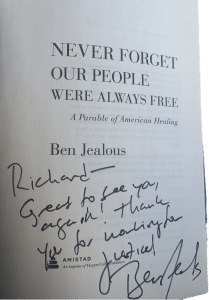 The book Never Forget Our People Were Always Free is told through parables. It features intimate glimpses of political and faith leaders such as Jack Kemp, Stacey Abrams, and the late Archbishop Desmond Tutu. The book also highlights unlikely heroes such as a retired constable, a female pirate from Madagascar, a long-lost Irishman, a death row inmate, and a man with a Confederate flag over his heart.
The book Never Forget Our People Were Always Free is told through parables. It features intimate glimpses of political and faith leaders such as Jack Kemp, Stacey Abrams, and the late Archbishop Desmond Tutu. The book also highlights unlikely heroes such as a retired constable, a female pirate from Madagascar, a long-lost Irishman, a death row inmate, and a man with a Confederate flag over his heart.
Never Forget Our People Were Always Free offers readers hope that America’s oldest wounds can heal and her oldest divisions can be overcome.
Although I have only read a handful of pages of the book, I highly recommend it!
by Steven Levitsky and Daniel Ziblatt
How Democracies Die: What History Reveals About Our Future by Steven Levitsky and Daniel Ziblatt was on my reading list for almost a year. In late December of last year, I started reading it and was in the final chapter on January 6, 2021. Like many of us, I never in my life expected to see a day like that in our country.
This type of event is one the authors talk about in their book.
According to the overview in GoodReads,
Donald Trump’s presidency has raised a question that many of us never thought we’d be asking: Is our democracy in danger? Harvard professors Steven Levitsky and Daniel Ziblatt have spent more than twenty years studying the breakdown of democracies in Europe and Latin America, and they believe the answer is yes. Democracy no longer ends with a bang–in a revolution or military coup–but with a whimper: the slow, steady weakening of critical institutions, such as the judiciary and the press, and the gradual erosion of long-standing political norms. The good news is that there are several exit ramps on the road to authoritarianism. The bad news is that, by electing Trump, we have already passed the first one.
Drawing on decades of research and a wide range of historical and global examples, from 1930s Europe to contemporary Hungary, Turkey, and Venezuela, to the American South during Jim Crow, Levitsky and Ziblatt show how democracies die–and how ours can be saved.
Our democracy is too valuable for us to have it die. We all need to work to preserve and strengthen it. How Democracies Die is a book that everyone needs to read!
by Craig Wright
The Hidden Habits of Genius: Beyond Talent, IQ, and Grit―Unlocking the Secrets of Greatness by Craig Wright, Ph.D., I got through my membership in One Day University.
Dr. Wright raises many important questions as he analyses fourteen (14) critical traits of genius. Professor Craig Wright, creator of Yale University’s famous “Genius Course,” explores what we can learn from brilliant minds that have changed the world.
What we often presume about a genius does not match reality. Among other interesting observations, Dr. Wright reminds the reader that Picasso could not pass a fourth-grade math test, and Steve Jobs’s high school GPA was 2.65. He questions why to teach children to behave and play by the rules when transformative geniuses do not.
Examining the lives of transformative individuals ranging from Charles Darwin and Marie Curie to Leonardo Da Vinci and Andy Warhol to Toni Morrison and Elon Musk, Wright identifies more than a dozen drivers of genius, characteristics and patterns of behavior common to great minds throughout history. He argues that genius is about more than intellect and work ethic and that the famed “eureka” moment is a Hollywood fiction. Brilliant insights that change the world are never sudden, but rather, they are the result of unique modes of thinking and lengthy gestation.
I found the book to be a fascinating read and raised more questions for future thought and reading. Professor Wright argues that the habits of mind that produce great thinking and discovery can be actively learned and cultivated. In the book, he explains how. He notes that reading the book will not make you a genius but can “make you more strategic, creative, and successful, and, ultimately, happier.
by Rachel Blythe Kodanaz
Finding Peace, One Piece at a Time by Rachel Blythe Kodanaz is a book I wish I had long before Jan died. It provides helpful information on maintaining an organized lifestyle and handling a loved one’s possessions.
Having lost almost everything I had except for the clothes on my back after a house fire in 1972, I thought I had adopted a view that possessions were not significant. With Jan’s death, the truth is that she and I had collected essential possessions, and now it was my responsibility to decide what to do with them.
Rachel’s book is a practical guide, offering a comprehensive understanding of the significance of possessions and a step-by-step plan to manage them. Chapter 3, in particular, is a treasure trove of practical advice, focusing on Building Your Game Plan: The Ten Essentials and covering all the crucial topics – triggers, building a team, and creating a timeline, among others.
Magic of the Six Piles is a well-designed plan that will help most of us confront the possessions of our loved ones. The piles are:
Having absorbed the book’s wisdom, I am ready to transition from contemplation to action. This is how I sort my wife’s possessions into six piles. I am optimistic that it will also help me streamline my possessions, making books my trusted company more accessible for my sons.
Ms. Kodanaz has presented at my bereavement groups and has been an inspiration. She has also encouraged me to write about my love for Jan in a journal.
by David Brooks

It is about “to be a success, make your mark, experience personal happiness.” Even when they reach the top of the mountain, most people find they are unhappy. The climb to the summit has become unsatisfying.
On the second mountain, life moves from self-centered to other-centered.” Life becomes interdependent, not independent; it becomes a life of commitment, not about us.
Mr. Brooks “explores the four commitments that define a life of meaning and purpose: to a spouse and family, to a vocation, to a philosophy or faith, and to a community.
We live in a society, Brooks argues, that celebrates freedom, that tells us to be true to ourselves, at the expense of surrendering to a cause, rooting ourselves in a neighborhood, binding ourselves to others by social solidarity and love. We have taken individualism to the extreme—and in the process we have torn the social fabric in a thousand different ways.
When I read The Second Mountain, it became clear that Jan and I never even attempted to climb the first mountain. We were constantly climbing the second mountain.
We had chosen to do work that repaired the world; we both had a faith community and lived in a community.
All we were missing as far as commitments when we met was each other. Our love for each other provided the missing link and allowed us to climb to the top of the second mountain.
The Jan Lilien Education Fund sponsors ongoing sustainability and environmental awareness programs. Gifts made this month; I will match dollar-for-dollar. All donations are tax-deductible.
I receive a commission when you buy a book or product using a link on this page. Thank you for supporting Sharing Jan’s Love blog.
by Martha Beck
Today, I started reading Martha Beck‘s “The Way of Integrity: Finding the Path to Your True Self,” a book recommended by my friend Mark. I always appreciate receiving book recommendations from friends and readers of my blog. In her self-help book, Ms. Beck asserts, “Integrity is the cure for psychological suffering. Period.” This book will be invaluable during my early period of grief. I purchased the eBook from Bookshop and plan to do so.
Bestselling author, life coach, and sociologist Martha Beck explains why “integrity”—needed now more than ever in these tumultuous times—is the key to a meaningful and joyful life. As she writes,
This book, as you may have gleaned from the title, is all about integrity. But I don’t mean this in a moralizing sense. The word integrity has taken on a slightly prim, judgmental nuance in modern English, but the word comes from the Latin integer, meaning “intact.” To be in integrity is to be one thing, whole and undivided. When a plane is in integrity, all its millions of parts work together smoothly and cooperatively. If it loses integrity, it may stall, falter, or crash. There’s no judgment here. Just physics.
In The Way of Integrity, Beck presents a four-stage process that anyone can use to find integrity, a sense of purpose, emotional healing, and a life free of mental suffering. Many issues, such as people-pleasing, staying in stale relationships, and maintaining unhealthy habits, arise from a disconnection from what truly makes us feel complete.
Inspired by The Divine Comedy, Beck uses Dante’s classic hero’s journey as a framework to break down the process of attaining personal integrity into small, manageable steps. She shows how to read the internal signals that lead us toward our true path and recognize what we yearn for versus what our culture sells us.
With techniques tested on hundreds of her clients, Beck brings her expertise as a social scientist, life coach, and human being to help readers uncover what integrity looks like in their lives. She takes us on a spiritual adventure that will change the direction of our lives and bring us to a place of genuine happiness.
Other books I have read with a similar theme, which I also recommend, include Man’s Search for Meaning, Climbing the Second Mountain, and The Pursuit of Happiness.
When you purchase a book through one of my links, I earn a small commission that helps support my passion for reading. This contribution allows me to buy even more books to share with you, creating an incredible cycle of discovering great reads together! Your support truly makes a difference!
by Rachel Blythe Kodanaz
Living With Loss, One Day at a Time by Rachel Blythe Kodanaz is the book I would recommend for anyone beginning or in the early stages of grief. It should be on the griever’s nightstand so they can start and end their day with reading.
Ms. Kodanaz has presented at my bereavement groups and has been an inspiration. She encouraged me not only to continue writing but also to share my thoughts publicly.
Usually, I only write a review once I have finished the book. However, this is a collection of thoughts for each day of the journey. Over the first weekend, I read up to the number of days since my wife died. Now I will read the daily message each day. When I get to the end of the year, I will start over.
There are many essential gems in the daily readings. The one for Day 9, Love Never Dies, jumped off the page due to my writings on the same theme.
Love Never Dies. Your loved one has passed away, but the love you shared has not died. The memories you created, the connection you built together, and your affection toward one another will live forever.
Embrace the love and cherish the memories, as they will always be a part of you remain in your heart.
There are at least a dozen others that I have earmarked for future streams or even the basis of future posts.
by Robert A. Caro
Working by Robert A. Caro is a book of evocatively written essays on his life and work. Among the many valuable words of wisdom is his case that one needs to look at every piece of information, not just what we know when we begin. Far too often, people jump to conclusions without having learned all of the facts.
He describes what it was like to interview the mighty Robert Moses and to begin discovering the extent of the political power Moses wielded; the combination of discouragement and exhilaration he felt confronting the vast holdings of the Lyndon B. Johnson Library in Austin, Texas; his encounters with witnesses, including longtime residents wrenchingly displaced by the construction of Moses’ Cross-Bronx Expressway and Lady Bird Johnson acknowledging the beauty and influence of one of LBJ‘s mistresses. He gratefully remembers how, after years of working in solitude, he found a writers’ community at the New York Public Library, and details the ways he goes about planning and composing his books.
Caro recalls the moments at which he came to understand that he wanted to write not just about the men who wielded power but about the people and the politics that were shaped by that power. And he talks about the importance to him of the writing itself, of how he tries to infuse it with a sense of place and mood to bring characters and situations to life on the page. Taken together, these reminiscences–some previously published, some written expressly for this book–bring into focus the passion, the wry self-deprecation, and the integrity with which this brilliant historian has always approached his work.
I found this one of the best books I have read and recommend it to all readers.
by Katherine May
Wintering: The Power of Rest and Retreat in Difficult Times by Katherine May is “an intimate, revelatory book exploring the ways we can care for and repair ourselves when life knocks us down.”
Two quotes that resonated with me were:
That’s what grief is – a yearning for that one last moment of contact that would settle everything.
We are in the habit of imagining our lives to be linear, a long march from birth to death in which we mass our powers, only to surrender them again, all the while slowly losing our youthful beauty. This is a brutal untruth. Life meanders through the woods. We have seasons when we flourish and seasons when the leaves fall upon us, revealing our bare bones. Given time they grow again.
May writes in a clear voice that conveys the importance of accepting the cycles of life instead of fighting them.
Sometimes you slip through the cracks: unforeseen circumstances like an abrupt illness, the death of a loved one, a breakup, or a job loss can derail a life. These periods of dislocation can be lonely and unexpected. For May, her husband fell ill, her son stopped attending school, and her own medical issues led her to leave a demanding job. Wintering explores how she not only endured this painful time but embraced the singular opportunities it offered.
A moving personal narrative shot through with lessons from literature, mythology, and the natural world, May’s story offers instruction on the transformative power of rest and retreat. Illumination emerges from many sources: solstice celebrations and dormice hibernation, C.S. Lewis and Sylvia Plath swimming in icy waters, and sailing arctic seas.
Ultimately Wintering invites us to change how we relate to our own fallow times. May models an active acceptance of sadness and finds nourishment in deep retreat, joy in the serene beauty of winter, and encouragement in understanding life as cyclical, not linear. A secular mystic, May forms a guiding philosophy for transforming the hardships that arise before the ushering in of a new season.
I recommend this book without reservation.
The Jan Lilien Education Fund sponsors ongoing sustainability and environmental awareness programs. Gifts made this month; I will match dollar-for-dollar. All donations are tax-deductible.
I receive a commission when you buy a book or product using a link on this page. Thank you for supporting Sharing Jan’s Love blog.
by Geraldine Brooks
Today, I started reading “Memorial Days: A Memoir” by Geraldine Brooks, the bestselling Pulitzer Prize-winning author of “Horse”. In this poignant and beautifully written memoir, she explores sudden loss and the journey toward healing. Why do I choose to read novels and memoirs about loss and grief? Perhaps it’s because, as Martín Prechtel wrote in his book “The Smell of Rain on Dust”, “Grief is praise because it is the natural way love honors what it misses.”
Many cultural and religious traditions expect grieving people to withdraw from the world. In modern life, we frequently encounter bureaucratic obstacles and lengthy to-do lists. This is precisely what happened to Geraldine Brooks when her partner of more than thirty years, Tony Horwitz—just sixty years old and, to her knowledge, vigorous and healthy—collapsed and died on a sidewalk in Washington, D.C.
After spending their early years together in conflict zones as foreign correspondents, Geraldine and Tony settled down to raise two sons on Martha’s Vineyard. They lived a fulfilling life filled with meaningful work, good humor, and tenderness. Geraldine and Tony spent their days writing and evenings cooking family dinners or enjoying sunsets with friends at the beach. Their peaceful existence abruptly ended on Memorial Day 2019 when Geraldine received the dreaded phone call we all fear. The demands of life became immediate and overwhelming, leaving little room for grief. The sudden loss created a profound void in their lives.
Three years later, she booked a flight to a remote island off the coast of Australia to give herself the time to mourn finally. She often spent days alone in a shack on the pristine, rugged coast without seeing another person. It was a space for her to reflect on the various ways cultures grieve and consider which rituals might help her rebuild her life in the wake of Tony’s death.
“Memorial Days,” a spare and profoundly moving memoir, portrays a larger-than-life man and the timeless love between two souls. It exquisitely captures the joy, agony, and mystery of life.
Geraldine Brooks is the author of six novels, including “Horse,” “People of the Book,” “Year of Wonders,” and the Pulitzer Prize-winning “March.” She has also written acclaimed nonfiction works, including “Nine Parts of Desire” and “Foreign Correspondence.” Her books have been translated into more than thirty languages and have sold millions of copies worldwide. Born and raised in Australia, Brooks now divides her time between Sydney and Martha’s Vineyard.
My journey through grief has significantly helped me grow as a person by focusing on conscientious resilience. I make it a point to read and walk daily, engage in worship, and actively participate as a volunteer and a good neighbor in my community. Fourteen hundred days ago, I wasn’t sure if I could continue living or how to move forward. However, by concentrating on strengthening my resilience, I now lead a life filled with meaning and purpose. I choose to look back not on what I lost but on what I have gained.
As my friend Danny said nearly a year ago, “You are an incredible person! You are a new person! A better person! Although Jan is not here physically, she has done so much for you!
My Rabbi, Rav Uri, echoed similar sentiments during his remarks when I received the Rev. Dr. Martin Luther King, Jr. Distinguished Service Award. If their beliefs are true, much of my progress directly results from my conscientious resilience!
When you purchase a book through one of my links, I earn a small commission that helps support my passion for reading. This contribution allows me to buy even more books to share with you, creating an incredible cycle of discovering great reads together! Your support truly makes a difference!
by Amy Liptrot
The Outrun: A Memoir by Amy Liptrot is about her return to Orkney after more than a decade; she visits the Outrun on the sheep farm where she grew up. Approaching the land that was once home, memories of her childhood merge with the recent events that have set her on this journey. My current grief journey is not like Amy Liptrot‘s, but I learned from her struggles as we all need the support of family and friends.
Amy’s long walks, detailed description of bird watching, and life on a small island were very moving. I might have moved from one apartment to the adjacent one, but I learned from Amy’s journey and feel more confident facing life’s uncertainties.
I highly recommend this memoir.
The Goodreads summary provides an overview,
Amy was shaped by the cycle of the seasons, birth and death on the farm, and her father’s mental illness, which was as much a part of her childhood as the wild, carefree existence on Orkney. But as she grew up, she longed to leave this remote life. She moved to London and found herself in a hedonistic cycle. Unable to control her drinking, alcohol gradually took over. Now thirty, she finds herself washed up back home on Orkney, standing unstable at the cliff edge, trying to come to terms with what happened to her in London.
Spending early mornings swimming in the bracingly cold sea, the days tracking Orkney’s wildlife—puffins nesting on sea stacks, arctic terns swooping close enough to feel their wings—and nights searching the sky for the Merry Dancers, Amy slowly makes the journey toward recovery from addiction.
The Outrun is a beautiful, inspiring book about living on the edge, about the pull between island and city, and about the ability of the sea, the land, the wind, and the moon to restore life and renew hope.
The Jan Lilien Education Fund sponsors ongoing sustainability and environmental awareness programs. Gifts made this month; I will match dollar-for-dollar. All donations are tax-deductible.
I receive a commission when you buy a book or product using a link on this page. Thank you for supporting Sharing Jan’s Love blog.
by Mark Kramer
I started reading Borscht Belt Boy: Recollections of a Hotel Brat by Mark Kramer today. The book is the story of a young man who grew up in the heyday of the Borscht Belt. The author sent me a copy when I shared my 2023 reading accomplishments. I found joy in reading his memoir as the author, and I are almost the same age.
The author, the son of a Catskills Mountain resort hotel owner, describes his experiences growing up when hotels, bungalow colonies, and sleep-away camps were booming. Learn about the characters that populated this world, from the kids who worked in the dining rooms, the handymen recruited from the Bowery, to the chefs and maitre d’s.
Enjoy the author’s humorous description of the different kinds of people who summered in the mountains. Read fascinating tales of entertainers, including Buddy Hackett and Lenny Bruce’s experiences at the family hotel. There is a brief history of Catskills’ institutions, how the influx of Jews changed the landscape, and how the resort trade influenced race, religion, and class.
This lighthearted memoir will return fond memories to those who visited the Borscht Belt in their youth and enlighten those not lucky enough to have shared this particular time and place in history.
The Jan Lilien Education Fund sponsors ongoing sustainability and environmental awareness programs. Regarding gifts made this month, I will match dollar for dollar. All donations are tax-deductible.
I receive a commission when you buy a book or product using a link on this page. Thank you for supporting Sharing Jan’s Love blog.
by Susan Wels
An Assassin in Utopia: The True Story of a Nineteenth-Century Sex Cult and a President’s Murder by Susan Wels is a true crime odyssey that explores a forgotten, astonishing chapter of American history, leading the reader from a free-love community in upstate New York to the shocking assassination of President James Garfield. I had read about this historical period in several other books, most recently Civil War by Other Means.
Susan Wels has written an excellent historical overview of a period we often overlook. I highly recommend An Assassin in Utopia: The True Story of a Nineteenth-Century Sex Cult and a President’s Murder.
The Oneida Community, even though it was the most successful utopian community, is often overlooked. Ms. Wels connects the dots and places the experiment in the center of a transitional period. It is not merely the connection between Charles Julius Guitea and his assassination of President James Garfield, albeit a brutal crime, that shook America to its core, but all of the other linkages. These include “John Humphrey Noyes; his idol, the eccentric newspaper publisher Horace Greeley (founder of the New Yorker and the New York Tribune).”
She also resurrects the importance of the Wormely Compromise and the African-American family that was an instrumental part of public society.
I have found fiction to be something I enjoy, but I knew it was time for a non-fiction book to balance my reading. The New York Times and other publications highly rated An Assassin in Utopia.
The Goodreads summary provides an overview,
It was heaven on earth—and, some whispered, the devil’s garden.
Thousands came by trains and carriages to see this new Eden, carved from hundreds of acres of wild woodland. They marveled at orchards bursting with fruit, thick herds of Ayrshire cattle and Cotswold sheep, and whizzing mills. They gaped at the people who lived in this place—especially the women, with their queer cropped hair and shamelessly short skirts. The men and women of this strange outpost worked and slept together—without sin, they claimed.
From 1848 to 1881, a small utopian colony in upstate New York—the Oneida Community—was known for its shocking sexual practices, from open marriage and free love to the sexual training of young boys by older women. And in 1881, a one-time member of the Oneida Community—Charles Julius Guiteau—assassinated President James Garfield in a brutal crime that shook America to its core.
An Assassin in Utopia is the first book that weaves together these explosive stories in a tale of utopian experiments, political machinations, and murder. This deeply researched narrative—by bestselling author Susan Wels—tells the true, interlocking stories of the Oneida Community and its radical founder, John Humphrey Noyes; his idol, the eccentric newspaper publisher Horace Greeley (founder of the New Yorker and the New York Tribune); and the gloomy, indecisive President James Garfield—who was assassinated after his first six months in office.
Juxtaposed to their stories is the odd tale of Garfield’s assassin, the demented Charles Julius Guiteau, who was connected to all of them in extraordinary, surprising ways.
Against a vivid backdrop of ambition, hucksterism, epidemics, and spectacle, the book’s interwoven stories fuse together in the climactic murder of President Garfield in 1881—at the same time as the Oneida Community collapsed.
Colorful and compelling, An Assassin in Utopia is a page-turning odyssey through America’s nineteenth-century cultural and political landscape.
The Jan Lilien Education Fund sponsors ongoing sustainability and environmental awareness programs. Gifts made this month; I will match dollar-for-dollar. All donations are tax-deductible.
I receive a commission when you buy a book or product using a link on this page. Thank you for supporting Sharing Jan’s Love blog.
Subscribe to Sharing Jan's Love Newsletter!
by Emma Cline
The Guest by Emma Cline is a highly recommended book, recognized as one of the top releases for May by The New York Times. At first, I assumed it was just another typical summer romance novel I usually don’t enjoy. However, I was surprised that it was unlike any other beach read I had encountered.
The protagonist, Alex, finds herself in a difficult situation after making a mistake at a dinner party in the East End of Long Island towards the end of summer. The man she’s been staying with dismisses her and sends her back to the city. With limited resources and a waterlogged phone, Alex decides to stay on Long Island and explore her surroundings. She wanders through exclusive neighborhoods and beaches, leaving a trail of destruction behind her.
According to The New York Times, Alex’s days and nights waiting for Labor Day might be “an entertaining series of misguided shenanigans interrupting the upper class’s summer vacation. However, under Cline’s command, every sentence is as sharp as a scalpel, portraying a woman who toes the line between welcome and unwelcome guest and becomes a fully destabilizing force for her hosts and the novel itself.
Although the book has no experience with themes, such as using sex to secure what she desires, as soon as I started reading it, I could not stop. Regardless of my unfamiliarity with the topics, I highly recommend The Guest.
The Jan Lilien Education Fund sponsors ongoing sustainability and environmental awareness programs. Gifts made this month; I will match dollar-for-dollar. All donations are tax-deductible.
I receive a commission when you buy a book or product using a link on this page. Thank you for supporting Sharing Jan’s Love blog.
by Lena Khalaf Tuffaha
I recently read “Something About Living” by Lena Khalaf Tuffaha, a poet and essayist whose work resonates deeply. The book of poems won the 2024 National Book Award for Poetry and delved into Palestinian life through the lens of the American language, revealing a legacy of obfuscation and erasure. It questions what happens when language packages ongoing disasters for consumption and disposal.
As a Jew supporting a two-state solution, I initially hesitated to read this collection of poems. However, I was pleasantly surprised by the lyrical beauty of the verses, which explore love not just as an emotion but as a transformative force and “a radical act.” Every poem that genuinely resonated with me. “Something About Living” is a book I highly recommend for its depth and insight!
Ms. Khalaf Tuffaha has an incredible literary repertoire; her previous work, “Water & Salt,” earned the esteemed 2018 Washington State Book Award, while “Kaan & Her Sisters” was a finalist for the Firecracker Award. In addition, “Something About Living” also received the 2022 Akron Prize for Poetry. I’m excited to explore her profound insights and lyrical mastery!
Adrian Matejka, the author of “Somebody Else Sold the World,” has written about “Something About Living,”
“It’s nearly impossible to write poetry that simultaneously holds the human desire for joy and the insistent agitations of protest, but Lena Khalaf Tuffaha‘s gorgeous and wide-ranging new collection Something About Living does just that. Her poems interweave Palestine’s historic suffering, the challenges of living in this world full of violence and ill will, and the gentle delights we embrace to survive that violence. Khalaf Tuffaha’s elegant poems sing the fractured songs of Diaspora while remaining clear-eyed to the cause of the fracturing: the multinational hubris of colonialism and greed. This collection is her witness to our collective unraveling, vowel by vowel, syllable by syllable. “Let the plural be a return of us,” the speaker of “On the Thirtieth Friday We Consider Plurals” says and this plurality is our tenuous humanity and the deep need to hang on to kindness in our communities. In these poems Khalaf Tuffaha reminds us that love isn’t an idea; it is a radical act. Especially for those who, like this poet, travel through the world vigilantly, but steadfastly remain heart first.
When you purchase a book through one of my links, I earn a small commission that helps support my passion for reading. This contribution allows me to buy even more books to share with you, creating an incredible cycle of discovering great reads together! Your support truly makes a difference!
by Mick Herron
Today, I started reading “The Secret Hours” by Mick Herron, a gripping spy thriller about a disastrous MI5 mission in Cold War Berlin. This book is a must-read for fans of “Slow Horses.” “The Secret Hours” is a standalone spy thriller that is both unnerving and poignant yet also has laugh-out-loud moments. It is the breathtaking secret history that Slough House fans have been waiting for.
Two years ago, a hostile prime minister launched the Monochrome inquiry, which aimed to investigate “historical over-reaching” by the British Secret Service. Griselda Fleet and Malcolm Kyle, two civil servants seconded to the project, were given unfettered access to all confidential information in the Service archives to ferret any hint of misconduct by any MI5 officer.
However, MI5’s formidable First Desk did not become Britain’s top spy by accident, and she has successfully thwarted the inquiry at every turn. The administration that created Monochrome has been ousted, and the investigation is a total bust. Griselda and Malcolm are stuck watching as the pounding London rain washes away their career prospects.
On the eve of Monochrome’s shuttering, an MI5 case file appears without explanation. It is the buried history of a classified operation in 1994 Berlin, which ended in tragedy and scandal, whose cover-up has rewritten thirty years of Service history.
The Jan Lilien Education Fund sponsors ongoing sustainability and environmental awareness programs. Regarding gifts made this month, I will match dollar for dollar. All donations are tax-deductible.
I receive a commission when you buy a book or product using a link on this page. Thank you for supporting Sharing Jan’s Love blog.
by Alice Hoffman
Today I started reading The Invisible Hour by Alice Hoffman. It’s a story about love, heartbreak, self-discovery, and the magic of books. The Invisible Hour is the story of one woman’s dream. For a little while, it came true. Nathaniel Hawthorne wrote: “A single dream is more powerful than a thousand realities.
Mia Jacob finds hope in the power of words on a brilliant June day. She reads The Scarlet Letter, a novel written almost two hundred years earlier, which mirrors her life. Mia and her mother, Ivy, live inside an oppressive cult in western Massachusetts called the Community, where contact with the outside world is forbidden, and books are considered evil. Nathaniel Hawthorne’s words perfectly capture the pain and loss that Mia carries inside her.
As Mia journeys through heartbreak and time, she breaks free from the rules of her Community. Along the way, she discovers the power of reading to transport and connect people, the fluidity of time, and the strength of love to overcome any obstacle.
As a young girl, Mia fell in love with a book. Now as a woman, she falls for a writer as she travels back in time. But what if Nathaniel Hawthorne never wrote “The Scarlet Letter”? What if Mia never found the book on the day she planned to end her life?
The Jan Lilien Education Fund sponsors ongoing sustainability and environmental awareness programs. Gifts made this month; I will match dollar-for-dollar. All donations are tax-deductible.
I receive a commission when you buy a book or product using a link on this page. Thank you for supporting Sharing Jan’s Love blog.
by A.M. Homes
The Unfolding by A.M. Homes is a darkly comic political parable braided with a Bildungsroman that takes us inside the heart of a divided country. The Unfolding is an alternative history that is terrifyingly prescient, profoundly tender, and devastatingly funny. Will this novel help me to understand how we became a nation that no longer shares the same definitions of truth, freedom, and democracy, much less a shared vision of the future?
Although I understand more clearly the crisis facing the US, I highly recommend this novel.
Ms. Homes has written a must-read book that compliments the January 6th Committee report and should make us all more vigilant.
The characters are so well defined that at the end of the novel, I wanted to continue to read about them, especially Meghan.
The Goodreads summary provides an overview,
The Big Guy loves his family, money, and country. Undone by the 2008 presidential election results, he taps a group of like-minded men to reclaim their version of the American Dream. As they build a scheme to disturb and disrupt, the Big Guy also faces turbulence within his family. His wife, Charlotte, grieves a life not lived, while his 18-year-old daughter, Meghan, realizes that her favorite subject–history–is not exactly what her father taught her.
In a story that is as much about the dynamics within a family as it is about the desire for those in power to remain in force, Homes presciently unpacks a dangerous rift in American identity, prompting a reconsideration of the definition of truth, freedom, and democracy–and exploring the explosive consequences of what happens when the exact words mean such different things to people living together under one roof.
In her first novel since the Women’s Prize award-winning May We Be Forgiven, A.M. Homes delivers us back to ourselves in this stunning alternative history that is both terrifyingly prescient, deeply tender, and devastatingly funny.
The Jan Lilien Education Fund sponsors ongoing sustainability and environmental awareness programs. Gifts made this month; I will match dollar-for-dollar. All donations are tax-deductible.
I receive a commission when you buy a book or product using a link on this page. Thank you for supporting Sharing Jan’s Love.
by Diane Oliver
Today, I began reading Diane Oliver‘s Neighbors and Other Stories. It’s a powerful and eerie debut collection of stories that portrays the struggles of different characters as they face the everyday dangers of racism during the Jim Crow era. The book features an introduction by Tayari Jones.
Diane Oliver is an important yet often overlooked figure in African American literature of the 20th century. She was a gifted writer, ahead of her time, whose talent was cut short by her untimely death at 22 in 1966. Nevertheless, she left behind a remarkable collection of crisply written and often chilling tales that delve into race and racism in America during the 1950s and 60s. Oliver’s insightful stories remain relevant today; this is the only existing collection of her works. She has rightfully earned her place in the literary canon as a masterful storyteller.
The passage below describes several short stories with different themes. The first story, “The Closet on the Top Floor,” tells the story of Winifred, the first Black student in a newly integrated college. In this story, Winifred begins to disappear, creating a nightmarish scenario. The second story is titled “Mint Juleps not Served Here.” It’s about a couple who live deep in a forest with their son. They will go to bloody lengths to protect him from any danger. The third story, “Spiders Cry without Tears,” features a couple named Meg and Walt. They must confront prejudices and strains of interracial and extramarital love. Finally, the last story is the titular one, and it’s a high-tension narrative that follows a nervous older sister the night before her younger brother is set to desegregate his school.
These are powerful and personal depictions of African American families‘ everyday struggles and moments of distress, illustrating how they utilize their abilities to overcome challenges. “Neighbors” is an enthralling compilation and a valuable historical and social document, displaying the remarkable literary skills of a previously overlooked author.